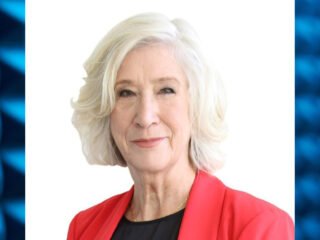Christine Tonkin is the Member for Churchlands in the Western Australian parliament. She has been in the role for a little more than two years.
A member of Roger Cook’s state Labor government, Ms Tonkin is probably the only politician in Australian history to discuss the importance of strong procurement policy frameworks in a maiden speech to the parliament.
Before being elected, Ms Tonkin had spent a career lifetime working in procurement in large organisations all over the world, in both the public and private sectors.
Her career included lengthy stints in roles with the Queensland Government, the government of Republic of Ireland, the Asian Development Bank, the International Atomic Energy Agency, and at the United Nations Development Programme, always in a procurement role or procurement reform.
In this episode of the Commercial Disco podcast, Ms Tonkin discusses what makes good procurement policy, both in terms of governance structures, as well as applying strategic thinking in the planning stages in order to maximise benefits.
Those benefits might be derived in the form of maximised value-for-money on behalf of shareholders or taxpayers, or it could be in building a strategic capability for the future.
InnovationAus.com has written numerous articles about technology procurements that have gone awry. Look no further than the troubled Parliamentary Expense Management System project or the National Disability Insurance Scheme’s Salesforce customer relationship management system, among many other examples.
Governments also have the opportunity to use the strength of their own purchasing power to build industrial capability within the economy – to use procurement policy as a lever for industry development.
Whatever the specific goal, procurement policy in government is a powerful tool, but an area that tends to go unseen, below the mainstream radar.
Having a new member of parliament with a deep understanding based on a career’s worth of experience is a novelty, and the reason we were so keen to talk to Ms Tonkin.
“I mentioned procurement [in my first speech to Parliament] because I’m always of the view that we can do procurement a lot better,” Ms Tonkin told the Commercial Disco podcast.
“And I’m particularly interested in using procurement to facilitate economic diversification to support local companies and also to support innovation.”
This interview is not a prosecution of procurement failures, and the conversation does not cover specific projects or even specific government policies.

But rather, two years into her role as a newly elected MP in Western Australia, Ms Tonkin is looking for opportunities where she can apply her experience.
Western Australia is looking at ways it can further encourage diversification of the state’s economy, a goal where strategic procurement policy can help. Ms Tonkin also says the energy transition of industry could be helped enormously through procurement planning that assists industrial development.
Anyone involved in the public sector procurement process will get some great insights from this conversation, whether on the buy-side as part of the public sector, or as a supplier to government.
I asked Christine Tonkin what had surprised her most in her observations of government procurement policies and processes since she has had the opportunity to take a close look as a member of Parliament.
“What surprises me is the extent to which procurement is focused on the solicitation, evaluation and contract award phase, which is the least value-adding aspect of the procurement process,” sxhe said.
“What I haven’t seen is a lot of good procurement strategy developed at the project level. And that’s where you get 75 per cent of the value-add in the procurement outcome.
Ms Tonkin says matter-of-factly that organisations get that 75 per cent of value from the strategic planning and good strategy that goes into good procurement, and just five per cent of the value-add from the solicitation, evaluation and contract phase.
The other 20 per cent of the value-add in a good procurement comes through effective contract delivery management.
Do you know more? Contact James Riley via Email.

